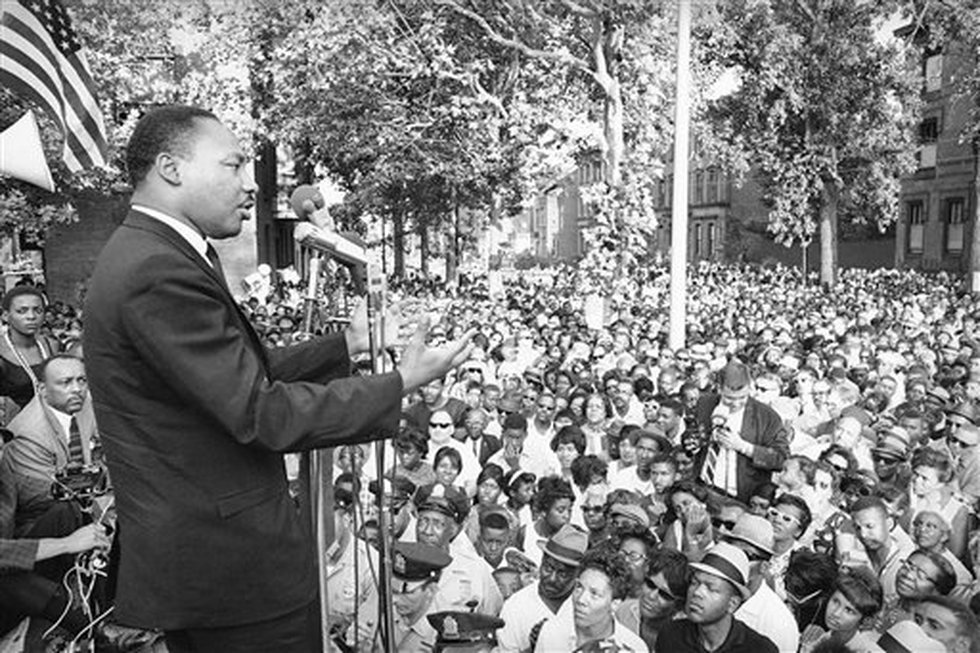10 of the most influential African Americans in history
Black History Month is a time to remember and reflect, especially at a time when the country is continually reminded of the discrimination African Americans have endured and are still subjected to by their fellow Americans. February is a time to celebrate the accomplishments of former slaves and civil rights leaders of decades past who helped put an end to segregation and slavery and inspired hope for African Americans.
Dr. Martin Luther King, Jr.
No single African American in history is perhaps as famous as Martin Luther King, Jr. A federal holiday on the third Monday each January celebrates his legacy. Entire sections of textbooks are devoted to his civil rights activism in the 1950s and 1960s. Dr. King made his mark by preaching nonviolent means of protesting segregation in the United States. MLK’s assassination at the hands of a white man in 1968 sparked riots and mourning across the world.
Rosa Parks
Best known for refusing to move to the back of a bus after being demanded she give up her seat to a white person, Rosa Parks was labeled as the “Mother of the Freedom Movement” following her bold disobedience subsequent arrest.
Muhammad Ali
Born Cassius Clay in 1942, Muhammad Ali made his name in the sport of boxing as one of the greatest heavyweight champions of all-time. He changed his name in the early 1960s from “Cassius Clay,” which he associated with slavery, and adopted a new one from the Islamic tradition that symbolized a new black separatist movement in the United States. Ali was an objector to the Vietnam War, which moved him into the realm of left-wing activism and intersected race with a larger counterculture movement.
Frederick Douglass
In Frederick Douglass’ autobiography, Narrative of the Life of Frederick Douglass, an American Slave, he outlines his life and subsequent escape from slavery, which proved instrumental to the abolitionist movement and the ultimate goal of ending slavery. Douglass lived during the Civil War in the middle of the 19th century.
W.E.B. Du Bois
W.E.B. Du Bois made his name as an author, academic, and activist in the generation before Rosa Parks and MLK. Du Bois is one of the founders of the NAACP, which remains one of the premier organizations for African American rights and activism.
Jackie Robinson
Like Ali in the 60s, Jackie Robinson was one of the most influential sports figures of his day. Robinson became the first African American to play for a Major League Baseball team, the Brooklyn Dodgers, which broke the league’s color barrier. Robinson’s career spanned a decade. His jersey number, 42, was “retired” by all MLB teams, meaning no player may ever use that number again, in 1997.
Harriet Tubman
Born into slavery in 1822, Harriet Tubman was famous for her efforts to help escaped slaves after escaping herself in 1849. She served an important part of the “Underground Railroad,” a secret path through slave-holding states for runaway slaves to escape to the north. Tubman was also referred to as “Moses.”
Sojourner Truth
Sojourner Truth was born into slavery, like Douglass and Tubman, and later escaped to become an abolitionist and activist for women’s rights. Religion was a focal point of Truth’s efforts. She played a major part in recruiting African American soldiers to fight for the Union (northern states) against the Confederacy (southern states) in the Civil War.
Langston Hughes
Langston Hughes was a poet and a novelist during the Harlem Renaissance. Hughes’ first pook of poetry, The Weary Blues, and subsequent works, helped outline the economic situation of lower-class African Americans.
Maya Angelou
One of the best-known African American authors, Maya Angelou’s autobiography, I Know Why The Caged Bird Sings, tells a coming-of-age tale that shows how racism affected a young girl, transforming her into the proud author she would later become. Angelou worked with MLK and other civil rights leaders to put a permanent end to segregation.


